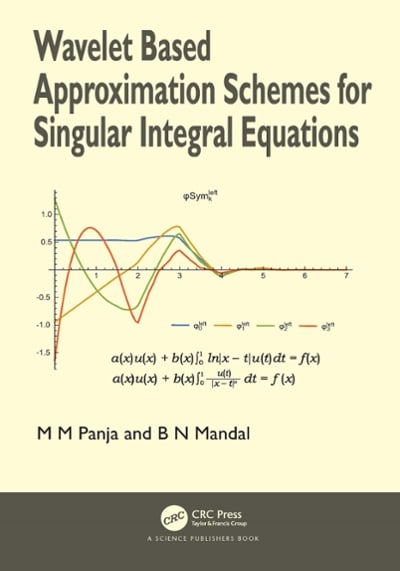Question
Case: JPMorgan Chase: Chasing Growth Through Mergers and Acquisitions JPMorgan Chase is a leading global financial services firm that provides broad-range investment banking, financial services
Case: JPMorgan Chase: Chasing Growth Through Mergers and Acquisitions
JPMorgan Chase is a leading global financial services firm that provides broad-range investment banking, financial services for consumers, small business and commercial banking, financial transaction processing, asset management, and private equity services. As of 2009, JPMorgan Chase operates in more than 60 countries with more than 200,000 employees. JPMorgan Chase serves millions of U.S. consumers and many of the world's most prominent corporate, institutional, and government clients. JPMorgan Chase is a component of the Dow Jones Industrial Average. With more than $2.3 trillion in assets, JPMorgan Chase is one of the largest banks in the United States. The company is not only doing well currently, with a promising future, but it also has a noteworthy history. JPMorgan Chase & Co. was founded in New York in 1799. The firm is built on the foundation of nearly 1,000 predecessor institutions that have come together over the years to form today's company. Here are some highlights from its recent history and the key transactions leading up to the formation of JPMorgan Chase: In 1991, Chemical Banking Corp. combined with Manufacturers Hanover Corp., keeping the name Chemical Banking Corp., then the second-largest banking institution in the United States. In 1995, First Chicago Corp. merged with National Bank of Detroit's parent NBD Bancorp., forming First Chicago NBD, the largest banking company based in the Midwest. In 1996, Chase Manhattan Corp. merged with Chemical Banking Corp., creating what was then the largest bank holding company in the United States. In 1998, Banc One Corp. merged with First Chicago NBD, taking the name Bank One Corp. Merging subsequently with Louisiana's First Commerce Corp., Bank One became the largest financial services firm in the Midwest, the fourth-largest bank in the United States, and the world's largest Visa credit card issuer. In 2000, JPMorgan & Co. merged with Chase Manhattan Corp., in effect combining four of the largest and oldest money center banking institutions in New York City (JPMorgan, Chase, Chemical, and Manufacturers Hanover) into one firm called JPMorgan Chase & Co. In 2004, JPMorgan Chase merged with Bank One. In 2008, JPMorgan Chase acquired Washington Mutual's deposits for $1.9 billion after the largest bank failure in U.S. history. This study source was downloaded by 100000799878078 from CourseHero.com on 12-07-2021 14:11:57 GMT -06:00 https://www.coursehero.com/file/61203888/JPMorganCase-2019-2docx/ This study resource was shared via CourseHero.com The acquisition of other companies is one of the primary methods that JPMorgan has used to grow its numbers and can be considered a strength in regard to how these mergers have combined to give rise to a broad range of commercial and investment banking capabilities. JPMorgan achieved it's best overall ranking ever in the 2008 Institutional Investor magazine's annual survey of U.S. equity analysts. The firm captured 38 spotsthe most ever for JPMorganplacing the team second overall in the survey, up from the fourth place in 2007. One noteworthy ranking is that JPMorgan ranked #1 with their top 150 priority clients for the second year in a row as recently as 2018. The company has achieved other recent accolades: This study source was downloaded by 100000799878078 from CourseHero.com on 12-07-2021 14:11:57 GMT -06:00 https://www.coursehero.com/file/61203888/JPMorganCase-2019-2docx/ This study resource was shared via CourseHero.com In order to sustain growth that is so important in its strategic and long-term plans, JPMorgan Chase conducted a study to understand its consumers, their lifestyles, and potential for customer segmentation in terms of investment products and service needs. The questionnaire used will be posted on the course site and the data file that will be used will be posted as well on the course site in a couple of weeks. The outputs and the analyses of this study should help JPMorgan Chase carve its growth plan and its successful implementation
Complete the following:
3.2 Approach
The appropriate research design is to use exploratory research followed by descriptive research. For example:
A review of secondary data (including syndicated sources) is a useful first step.
These sources will provide highly credible information that can be brought to bear precisely on the problem of expanding market sharing by catering to consumer preferences.
Focus groups are a popular exploratory technique. They allow researchers to communicate directly with a group of consumers. Consumers interact with one another enabling them to exhaust all ideas, attitudes and impressions they contain.
Descriptive research enables researchers to describe market characteristics and functions. Initially, a single cross-sectional survey can be conducted that is repeated periodically. Thus multiple cross-sectional designs will emerge over time. Surveys to gather descriptive research can be designed to learn the following:
- To develop a profile of the characteristics of consumers who exhibit positive preferences and/or intentions toward JPMorgan Chase.
- To determine the criteria consumers use to evaluate JPMorgan Chase and competing banks.
- To determine the characteristics of consumers who exhibit loyalty toward JPMorgan Chase.
Please elaborate on previous points and develop your research questions and hypotheses.
RQ1
H1
H2
RQ2
H3
H4
RQ3
H5
H6
H7
Step by Step Solution
There are 3 Steps involved in it
Step: 1

Get Instant Access to Expert-Tailored Solutions
See step-by-step solutions with expert insights and AI powered tools for academic success
Step: 2

Step: 3

Ace Your Homework with AI
Get the answers you need in no time with our AI-driven, step-by-step assistance
Get Started


